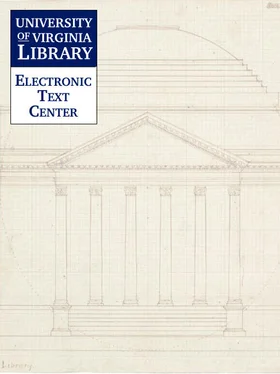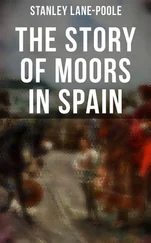Hendrik Loon - The Story of Mankind
Здесь есть возможность читать онлайн «Hendrik Loon - The Story of Mankind» весь текст электронной книги совершенно бесплатно (целиком полную версию без сокращений). В некоторых случаях можно слушать аудио, скачать через торрент в формате fb2 и присутствует краткое содержание. Год выпуска: 2000, Издательство: Electronic Text Center. University of Virginia Library., Жанр: Старинная литература, на английском языке. Описание произведения, (предисловие) а так же отзывы посетителей доступны на портале библиотеки ЛибКат.
- Название:The Story of Mankind
- Автор:
- Издательство:Electronic Text Center. University of Virginia Library.
- Жанр:
- Год:2000
- ISBN:нет данных
- Рейтинг книги:3 / 5. Голосов: 1
-
Избранное:Добавить в избранное
- Отзывы:
-
Ваша оценка:
- 60
- 1
- 2
- 3
- 4
- 5
The Story of Mankind: краткое содержание, описание и аннотация
Предлагаем к чтению аннотацию, описание, краткое содержание или предисловие (зависит от того, что написал сам автор книги «The Story of Mankind»). Если вы не нашли необходимую информацию о книге — напишите в комментариях, мы постараемся отыскать её.
The Story of Mankind — читать онлайн бесплатно полную книгу (весь текст) целиком
Ниже представлен текст книги, разбитый по страницам. Система сохранения места последней прочитанной страницы, позволяет с удобством читать онлайн бесплатно книгу «The Story of Mankind», без необходимости каждый раз заново искать на чём Вы остановились. Поставьте закладку, и сможете в любой момент перейти на страницу, на которой закончили чтение.
Интервал:
Закладка:
The tremendous emotion of the great revolutionary era had influenced the character of the people of that day in a strange way. Men and women who had lived through twenty years of anxiety and fear were no longer quite normal. They jumped whenever the door-bell rang. It might mean the news of the ``death on the field of honour'' of an only son. The phrases about ``brotherly love'' and ``liberty'' of the Revolution were hollow words in the ears of sorely stricken peasants. They clung to anything that might give them a new hold on the terrible problems of life. In their grief and misery they were easily imposed upon by a large number of imposters who posed as prophets and preached a strange new doctrine which they dug out of the more obscure passages of the Book of Revelations.
In the year 1814, Alexander, who had already consulted a large number of wonder-doctors, heard of a new seeress who was foretelling the coming doom of the world and was exhorting people to repent ere it be too late. The Baroness von Krüdener, the lady in question, was a Russian woman of uncertain age and similar reputation who had been the wife of a Russian diplomat in the days of the Emperor Paul. She had squandered her husband's money and had disgraced him by her strange love affairs. She had lived a very dissolute life until her nerves had given way and for a while she was not in her right mind. Then she had been converted by the sight of the sudden death of a friend. Thereafter she despised all gaiety. She confessed her former sins to her shoemaker, a pious Moravian brother, a follower of the old reformer John Huss, who had been burned for his heresies by the Council of Constance in the year 1415.
The next ten years the Baroness spent in Germany making a specialty of the ``conversion'' of kings and princes. To convince Alexander, the Saviour of Europe, of the error of his ways was the greatest ambition of her life. And as Alexander, in his misery, was willing to listen to anybody who brought him a ray of hope, the interview was easily arranged. On the evening of the fourth of June of the year 1815, she was admitted to the tent of the Emperor. She found him reading his Bible. We do not know what she said to Alexander, but when she left him three hours later, he was bathed in tears, and vowed that ``at last his soul had found peace.'' From that day on the Baroness was his faithful companion and his spiritual adviser. She followed him to Paris and then to Vienna and the time which Alexander did not spend dancing he spent at the Krüdener prayer-meetings.
You may ask why I tell you this story in such great detail? Are not the social changes of the nineteenth century of greater importance than the career of an ill-balanced woman who had better be forgotten? Of course they are, but there exist any number of books which will tell you of these other things with great accuracy and in great detail. I want you to learn something more from this history than a mere succession of facts. I want you to approach all historical events in a frame of mind that will take nothing for granted. Don't be satisfied with the mere statement that ``such and such a thing happened then and there.'' Try to discover the hidden motives behind every action and then you will understand the world around you much better and you will have a greater chance to help others, which (when all is said and done) is the only truly satisfactory way of living.
I do not want you to think of the Holy Alliance as a piece of paper which was signed in the year 1815 and lies dead and forgotten somewhere in the archives of state. It may be forgotten but it is by no means dead. The Holy Alliance was directly responsible for the promulgation of the Monroe Doctrine, and the Monroe Doctrine of America for the Americans has a very distinct bearing upon your own life. That is the reason why I want you to know exactly how this document happened to come into existence and what the real motives were underlying this outward manifestation of piety and Christian devotion to duty.
The Holy Alliance was the joint labour of an unfortunate man who had suffered a terrible mental shock and who was trying to pacify his much-disturbed soul, and of an ambitious woman who after a wasted life had lost her beauty and her attraction and who satisfied her vanity and her desire for notoriety by assuming the rôle of self-appointed Messiah of a new and strange creed. I am not giving away any secrets when I tell you these details. Such sober minded people as Castlereagh, Metternich and Talleyrand fully understood the limited abilities of the sentimental Baroness. It would have been easy for Metternich to send her back to her German estates. A few lines to the almighty commander of the imperial police and the thing was done.
But France and England and Austria depended upon the good-will of Russia. They could not afford to offend Alexander. And they tolerated the silly old Baroness because they had to. And while they regarded the Holy Alliance as utter rubbish and not worth the paper upon which it was written, they listened patiently to the Tsar when he read them the first rough draft of this attempt to create the Brotherhood of Men upon a basis of the Holy Scriptures. For this is what the Holy Alliance tried to do, and the signers of the document solemnly declared that they would ``in the administration of their respective states and in their political relations with every other government take for their sole guide the precepts of that Holy Religion, namely the precepts of Justice, Christian Charity and Peace, which far from being applicable only to private concerns must have an immediate influence on the councils of princes, and must guide all their steps as being the only means of consolidating human institutions and remedying their imperfections.'' They then proceeded to promise each other that they would remain united ``by the bonds of a true and indissoluble fraternity, and considering each other as fellow-countrymen, they would on all occasions and in all places lend each other aid and assistance.'' And more words to the same effect.
Eventually the Holy Alliance was signed by the Emperor of Austria, who did not understand a word of it. It was signed by the Bourbons who needed the friendship of Napoleon's old enemies. It was signed by the King of Prussia, who hoped to gain Alexander for his plans for a ``greater Prussia,'' and by all the little nations of Europe who were at the mercy of Russia. England never signed, because Castlereagh thought the whole thing buncombe. The Pope did not sign because he resented this interference in his business by a Greek-Orthodox and a Protestant. And the Sultan did not sign because he never heard of it.
The general mass of the European people, however, soon were forced to take notice. Behind the hollow phrases of the Holy Alliance stood the armies of the Quintuple Alliance which Metternich had created among the great powers. These armies meant business. They let it be known that the peace of Europe must not be disturbed by the so-called liberals who were in reality nothing but disguised Jacobins, and hoped for a return of the revolutionary days. The enthusiasm for the great wars of liberation of the years 1812, 1818, 1814 and 1815 had begun to wear off. It had been followed by a sincere belief in the coming of a happier day. The soldiers who had borne the brunt of the battle wanted peace and they said so.
But they did not want the sort of peace which the Holy Alliance and the Council of the European powers had now bestowed upon them. They cried that they had been betrayed. But they were careful lest they be heard by a secret-police spy. The reaction was victorious. It was a reaction caused by men who sincerely believed that their methods were necessary for the good of humanity. But it was just as hard to bear as if their intentions had been less kind. And it caused a great deal of unnecessary suffering and greatly retarded the orderly progress of political development.
Читать дальшеИнтервал:
Закладка:
Похожие книги на «The Story of Mankind»
Представляем Вашему вниманию похожие книги на «The Story of Mankind» списком для выбора. Мы отобрали схожую по названию и смыслу литературу в надежде предоставить читателям больше вариантов отыскать новые, интересные, ещё непрочитанные произведения.
Обсуждение, отзывы о книге «The Story of Mankind» и просто собственные мнения читателей. Оставьте ваши комментарии, напишите, что Вы думаете о произведении, его смысле или главных героях. Укажите что конкретно понравилось, а что нет, и почему Вы так считаете.












